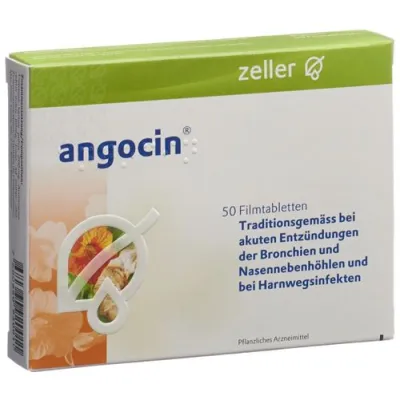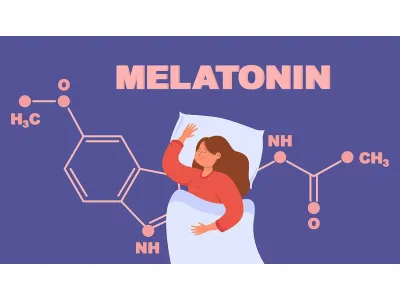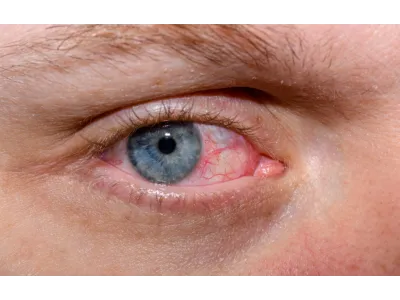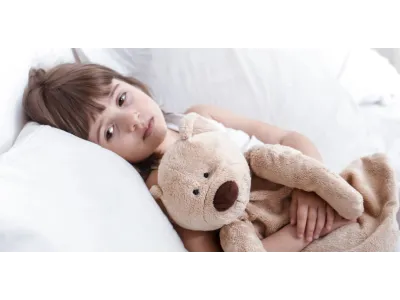Choosing the Right Treatment for Respiratory Infections: Dosage, Ingredients, and Benefits
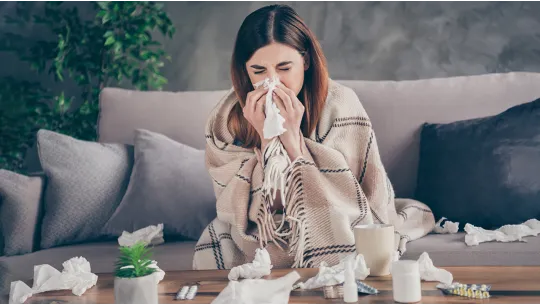
Respiratory infections are among the most common diseases affecting people of all ages worldwide. These infections affect the respiratory system, including the nose, throat, airways, and lungs, causing a wide range of symptoms that can affect daily life and general health.
Understanding Respiratory Infections
Respiratory infections are caused by pathogens such as viruses, bacteria, and fungi that infect the respiratory system. These infections can range from mild to severe and fall into two main types: upper respiratory tract infections (URIs), which affect the nose, throat, and bronchial tubes, and lower respiratory tract infections (LUTIs), which affect the lungs and lower respiratory tract.
Common types of respiratory infections:
- Colds: Caused by a variety of viruses, with rhinovirus being the most common. Symptoms include runny nose, sore throat, frequent vomiting, temperature over 39 degrees, dehydration (dry mucous membranes), coughing and sneezing.
- Influenza: A more severe respiratory infection caused by influenza viruses, with the possibility of severe complications and the risk of death. Symptoms are similar to the common cold, but much more dangerous, and can include fever, body aches, and extreme fatigue.
- Respiratory syncytial virus (RSV): RSV, especially common in children, causes mild cold-like symptoms but can lead to serious respiratory problems such as bronchiolitis and pneumonia in young infants and the elderly.
Correct Treatment of Respiratory Infections
Respiratory infections, from the common cold to more serious illnesses such as pneumonia, wreak havoc on public health every year. Proper treatment of infections not only speeds recovery, but also prevents the spread of disease in communities.
- Accurate diagnosis: Pathogens such as viruses, bacteria, or fungi cause similar symptoms, making it difficult to identify an infection based on symptoms alone. Health care providers then use physical examinations, medical histories, and special tests, including PCR tests for viruses or bacterial cultures, to accurately diagnose the infection and its cause. After an accurate diagnosis of a respiratory infection, the correct approach to treatment significantly affects the outcome of recovery.
Treatment strategies vary depending on the type and severity of the infection:
- Viral infections: Most common respiratory infections, such as colds and flu, are viral and do not require antibiotic treatment. Treatment focuses on relieving symptoms with hydration, rest, and over-the-counter medications. For example, such a tool as Angocin Filmtabl is a drug that is used to relieve the symptoms of acute inflammation of the bronchi and paranasal sinuses, as well as in adult women with symptoms of urinary tract infections. Angocin ingredients consist of nasturtium herb powder and horseradish root.
Angocin film tablets 50 pcs
Angocin is a medicine containing nasturtium herb powder and horseradish root powder. Swissmedic-approved patient informationAngocin®, film-coated tabletsMax Zeller Söhne AGHerbal medicinal product What is Angocin and when is it used?Angocin is a medicine containing nasturtium herb powder and horseradish root powder. Angocin is applied:Traditionally used to improve symptoms of acute inflammation of the bronchi and paranasal sinuses;Traditionally used in female adults with symptoms of urinary tract infections. What should be considered? For use in symptoms of acute inflammation of the respiratory tract: For symptoms that last longer than a week or if shortness of breath occurs, fever such as A doctor should also be consulted if there is purulent or bloody sputum. For use in symptoms of urinary tract infections: A doctor should be consulted if there is blood in the urine, fever or if the symptoms persist for more than 5 days. Urinary tract problems in children and adolescents under the age of 18, as well as male adults and pregnant women, are generally considered to be complicated, require medical evaluation and must not be treated with Angocin (see also "When should Angocin not be taken or should only be taken with caution?"). The active ingredient nasturtium herb powder contains vitamin K. If Angocin is taken at the same time as anticoagulant drugs (so-called vitamin K antagonists), it cannot be ruled out that the effect of these anticoagulant drugs will be impaired. When taking the anticoagulant drugs mentioned (e.g. Marcoumar or Sintrom or other products with these active ingredients), it is therefore recommended to check the Quick value or INR value closely or have it checked and to consult the doctor or nurse in charge. to consult the treating doctor. In children aged 6 to 12 years with symptoms of acute inflammation of the airways, Angocin should only be used after consulting a doctor. The use of Angocin in children under 6 years of age has not been adequately studied. It should therefore not be used in this age group. When should Angocin not be taken or only with caution?Angocin should not be taken, if you are hypersensitive to nasturtium herb, horseradish root or any of the excipients of this medicine (see «What does Angocin contain?»),if you suffer from acute gastric or intestinal ulcers,if you suffer from acute kidney inflammation,if you are pregnant.Urinary tract problems in children and adolescents under the age of 18 as well as male adults and pregnant women apply in principle as complicated, require a medical examination and must not be treated with Angocin (see under «What should be considered?») Tell your doctor, pharmacist or druggist if you suffer from other diseases,have allergies ortake other medicines (including those you bought yourself!)! Can Angocin be taken while pregnant or breastfeeding?If you are pregnant or breastfeeding, think you may be pregnant or are planning to have a baby , ask your doctor, pharmacist or druggist for advice before taking this medicine. For fundamental medical reasons, no treatment should be carried out during pregnancy (see "What should be considered?" and "When should Angocin not be taken or should only be taken with caution?"). Angocin does not yet have adequate data on its use during pregnancy. It is not known whether the active substances in Angocin are excreted in human milk. The drug should therefore not be used during pregnancy and breast-feeding. How do you use Angocin?Complaints with acute inflammation of the respiratory tractIf prescribed by a doctor not otherwise prescribed: Adults and adolescents over 12 years4-5 film-coated tablets 3-5 times a day (standard dose: 4 film-coated tablets 3 times a day) Children from 6 to 12 years only on the doctor's orders2-4 film-coated tablets 3-4 times a day (standard dose: 3 film-coated tablets 3 times a day) Complaints with urinary tract infectionsFemale adults over the age of 18 (pregnancy must be ruled out)3-5 times 4-5 film-coated tablets daily (standard dose: 4 film-coated tablets 3 times a day). Please take the film-coated tablets whole with sufficient liquid after meals. Angocin should not be taken for more than two weeks. Follow the dosage given in the package leaflet or as prescribed by your doctor. If you think the medicine is too weak or too strong, talk to your doctor, pharmacist or druggist. What side effects can Angocin have?Like all medicines, this medicine can have side effects. The following side effects have been observed with Angocin: Common: Stomach and intestinal problems such as nausea, upper abdominal pressure, diarrhea, flatulence or heartburn.In this case, we recommend reducing the dose. If the symptoms persist, you should stop taking the medicine and talk to your doctor.Uncommon: Allergic reactions affecting the whole body and hypersensitivity reactions of the skin ( e.g. reddening of the skin with a feeling of heat, skin rash and/or itching).In this case, you should stop taking the medicine immediately and consult a doctor immediately. If you get any side effects, talk to your doctor, pharmacist or druggist. This applies in particular to side effects that are not listed in indicated in this leaflet. What else needs to be considered?The medicinal product may only be used up to the date marked «EXP» on the container. Storage instructionsDo not store above 30 °C and keep out of the reach of children. Further informationYour doctor, pharmacist or druggist can provide you with further information. These people have the detailed information for specialists. What does Angocin contain?Active ingredients1 film-coated tablet contains: Nasturtium herb powder 200 mg, horseradish root powder 80 mg ExcipientsCellulose, hypromellose, potato starch, macrogol, sodium carboxymethyl starch, colloidal silica, stearic acid, talc, coloring (iron oxides and hydroxides E 172, titanium dioxide E 171) Approval number66092 (Swissmedic) Where can you get Angocin? What packs are available?In pharmacies and drugstores, without a doctor's prescription. Packs of 50, 100 and 200 film-coated tablets. Authorization holderMax Zeller Söhne AG, 8590 Romanshorn This leaflet was last checked by the Medicines Agency (Swissmedic) in November 2017. ..
45.88 USD
It is important to remember that the active substance of Angocin zeller is nasturtium grass powder, which contains vitamin K. When Angocin is used simultaneously with anticoagulants (so-called vitamin K antagonists), worsening of the action of these anticoagulants cannot be excluded. Therefore, it is important to consult a doctor or nurse when taking anticoagulants.
Also, like all medicines, this drug can have side effects. Angocin side effects: stomach and intestinal problems such as nausea, pressure in the upper abdomen, diarrhea, flatulence or heartburn. In this case, we recommend reducing the dose. If the symptoms do not disappear, you should stop taking the medicine and consult a doctor. Allergic reactions affecting the whole body and skin hypersensitivity reactions (e.g. reddening of the skin with a feeling of heat, skin rash and/or itching) are uncommon.
- Bacterial infections: Antibiotics are effective against bacterial respiratory infections such as strep throat, bacterial pneumonia, or whooping cough. It is important to finish the prescribed course of antibiotics even if symptoms improve to prevent resistance.
- Supportive care: In addition to specific treatment, supportive care, including humidifiers, saline nasal sprays, and proper nutrition, can help relieve symptoms and support the body's healing process.
In addition to treating individual cases, prevention of respiratory infections is very important for public health. Vaccinations against influenza and pneumococcal infection are effective preventive measures. Good hygiene practices, including frequent hand washing and wearing masks during outbreaks, can also reduce the transmission of respiratory pathogens.
Key Ingredients for Respiratory Health
Remedies for respiratory ailments include ingredients with anti-inflammatory, antihistamine, analgesic and expectorant properties. Each of which helps in the treatment and relief of specific symptoms, as well as promotes a speedy recovery.
- Decongestants: substances that reduce swelling of the nasal passages, making breathing easier. They work by narrowing the blood vessels in the nose and throat, reducing blood flow and, subsequently, inflammation. Common decongestants include pseudoephedrine and phenylephrine. They are particularly effective in relieving nasal congestion, but should be used with caution due to possible side effects such as increased heart rate and blood pressure.
- Antihistamines: Counteract the effects of histamine, a chemical released during allergic reactions that can cause itching, swelling, and mucus production. By blocking histamine receptors, antihistamines can relieve symptoms such as runny nose, sneezing, and itching. They are necessary for the treatment of respiratory symptoms caused by allergies. Examples include diphenhydramine, loratadine, and cetirizine. Some antihistamines can cause drowsiness, so it is useful to use them at night.
- Analgesics, anesthetics: or pain relievers are used to reduce pain associated with respiratory infections, including sore throats, headaches, and body aches. Acetaminophen and ibuprofen are commonly used pain relievers that can also reduce fever, helping to relieve patients during recovery. Angina MCC Streuli Lozenges consists of a combination of cetylpyridinium, lidocaine and menthol. While cetylpyridinium is responsible for the bactericidal effect of lozenges, lidocaine relieves pain in the mucous membrane of the oral cavity, pharynx and larynx and thereby eliminates difficult swallowing. Angina MCC is used for infections or inflammations of the oral cavity and/or throat (angina, laryngitis or pharyngitis) and diseases of the mucous membrane of the oral cavity and/or throat (aphthae, stomatitis).
- Expectorants: help clear the airways of mucus, which makes coughing more productive. By loosening and thinning the mucus in the chest, expectorants help to expel it more easily. Guaifenesin is a widely used expectorant that can relieve chest congestion associated with colds, flu, and other respiratory infections. Increasing fluid intake can also help make expectorants more effective.
The key to effective treatment of respiratory infections is symptom relief. Anti-edematous, antihistamine, analgesics and expectorants perfectly relieve discomfort and promote rapid recovery. Also, supportive care through hydration, rest, and humidifiers can promote airway health and speed recovery.
Disclaimer: The information provided in this article contains general information about respiratory infections and their quality treatment and should not be considered a substitute for professional medical advice. Always consult a healthcare professional before starting treatment for any respiratory infection to make sure it is safe and appropriate for your individual needs.
L. Baumann

